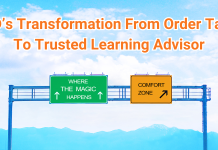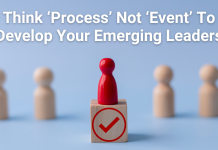
Why do some books, movies and songs quickly fizzle out, while others keep selling year after year?
The answer to what makes an instant “classic” is one many authors, musicians, and artists have pondered for millennia. While there’s no one silver bullet answer, there are key ways to ensure that your work gains a solid foothold in your industry. So how do you create work that will withstand the test of time? How can you make your “classic”?
Ryan Holiday is the best-selling author of multiple books, including The Obstacle Is the Way, Ego Is the Enemy, and Growth Hacker Marketing. His company, Brass Check, has advised companies like Google and Taser, as well as multi-platinum musicians and some of the biggest authors in the world, including Tim Ferriss, Tony Robbins, and Arianna Huffington. His new book is Perennial Seller: The Art of Making and Marketing Work that Lasts.
I recently interviewed Ryan for the LEADx Podcast, where we discussed what it means to find your niche, create solid work, and get to know your audience. (The interview below has been lightly edited for space and clarity.)
Kevin Kruse: What is a perennial bestseller?
Ryan Holiday: A perennial seller is in some ways a book industry term. It's the kind of titles that are still selling a year or more out from their release. People don't realize that most books not only don't sell when they first come out, but they never sell. Even the ones that do sell at the beginning stop selling fairly quickly. The whole industry is really kept afloat by the classics, a Good to Great or a Great Gatsby or a To Kill a Mockingbird, or even children's books. These are the kind of classic titles, the little engines that could.
That's what I think you want to make, whether you're opening a coffee shop—you want to be the one that's been in the same spot since 1968—or whether you're starting a website—Craigslist is 21 or 22 years old— or you're putting out an album. I think Born To Run is on its 40th anniversary. Those are the kind of classic works that we aspire to. If you look at the habits of most creative people, this isn't an accident. This doesn't just happen. This has to be consciously created. That's what the book is about.
Kruse: You say that you should ask a question that almost no one asks. What is that question? Where should we begin?
Holiday: I think far too many creators start with what they want to make. It is important. If you don't want to make your thing, it's not probably going to be a good use of your time. But they don't ask the flip side of that question, which is who is this for? Who is the actual market for this product? I see this with authors. They write a book, and then they go, “Who should I market this to?” as if they are the perennial solution in search of a problem, rather than a problem in search of a solution. As a creator, you want to go, “There needs to be this book for this market,” or, “This neighborhood is desperately missing a ‘blank.’” If you can fill in that blank, not only is it going to be easier to make what you're making, it's going to be much easier to market that thing as well.
Kruse: Who's this for, do you use a marketing avatar? Like you can picture it's Kevin Kruse, age 50, living in Philadelphia? Do you take it down to a person?
Holiday: Yes. I try to have some stand-in for the audience. Perennial Seller was easier than my other books in that I was really writing it to a lot of clients that I talk on the phone to, or have meetings with or projects that I work on. Perennial Seller was less one person. Ego Is the Enemy or The Obstacle Is the Way might have been a book that I was writing to myself five or 10 years younger or a friend I know or an employee of mine or something like that. But Perennial, it was like I talk to these people on a daily basis and so could I just take everything I talk to them about and put it in a framework and go, “Here. You don't need to hire me anymore. Read this book.” In that way, I'm already quite certain it has at least a small audience. However many people that are in that little bubble, they're going to be interested in this book.
Then, if you can really nail it for a couple of people, it's going to be much more likely that there are going to be other people like them in the world. There's even that thing: If you're one in a million, there's like seven million of you on the planet. If you can really nail it for a few people, that audience gets very large very quickly, just because of demographics.
Kruse: You talk about the importance of platform. What do you mean by platform, and what would you say are the effective ways to build one?
Holiday: I think platform is essential to everyone, not just authors. Anyone who is trying to get something out in the world, whether that's a product or a message, we no longer live in an environment where The New York Times has a monopoly on smart, urban, educated elites, or that even a spot on CNN is going to guarantee you X number of people. You have to have access to your own audience, whether that's 50 people or 100 people or 1,000 people or a million people. Who can you speak to when you have something to say?
As an author, one of the things that I've always aspired to is the idea that if I wake up on Monday and have a thought, there's a certain number of people who are going to hear that thought if I want them to, because I've not only developed that, but I've maintained it and I've organized it in such a way that I have access to them.
I think email is probably the most effective tool. It's the most perennial of the mediums at this point. If you have a lot of Twitter followers, you have a lot of fans—provided Twitter remains a platform. Or, if you have a lot of Facebook fans, you have access to those Facebook fans depending on Facebook's algorithm and what they will charge you to get access to those fans. I think email is right now the best. But you look at musicians and businesses that have an analog relationship with their customer, they can see them in person. Obviously, that's even better.
You've got to have access to your people. You write for Forbes. If tomorrow Forbes announces, “Hey, we're closing our contributor platform,” and it was only by posting those articles that you had access to your readers, all of a sudden you're S.O.L.
Kruse: I always say we want every day to get a little bit better. How can we get 1% better? Is there something you can challenge us to do today, something practical?
Holiday: That's a good question. I don't necessarily know if I have an answer to that. I like this exercise of, “Okay, if today was your last day on earth, what would you do?” or, “If the world was ending, what would you do?” I think the problem with that is it descends into an orgy of anarchy and violence very quickly. If there's no point in doing anything, things collapse very quickly. But what if we were to look at it like you were being deployed tomorrow? What would you do if you were being sent off, I don't know, to Afghanistan or Iraq tomorrow and you had a day to get all your stuff in order? What would that look like?
That mental exercise or that challenge has been a good one for me. I'd tie up these loose ends. I'd do this thing that I was putting off. I'd spend time with these people. I'd feel grateful. I'd probably call it a day early. I'd do a number of those kinds of things. I think that would be a really good exercise for people.
—
Kevin Kruse is a New York Times bestselling author, host of the popular LEADx Leadership Podcast, and the CEO/Founder of LEADx.org, which provides free world-class leadership training, professional development and career advice for anyone, anywhere.





